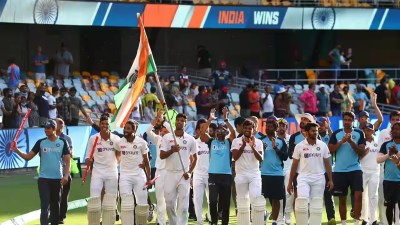Regret over Gujarat
Pramod Mahajan's claim that the Gujarat riots were a black spot for any civilised society is a belated admission of a profound moral failure...

Pramod Mahajan8217;s claim that the Gujarat riots were a black spot for any civilised society is a belated admission of a profound moral failure on the BJP8217;s part. It is also of significance that he does not absolve the central leadership for them. He was bold enough to suggest that the party as a whole, rather than just Narendra Modi, bears responsibility for the riots. BJP leaders have occasionally expressed regrets over Gujarat. But these were too full of qualifications, too geared to the audiences they were addressing and too opportunistic to be entirely sincere. The sincerity of Mahajan8217;s regret will also be tested. What will the BJP do to ensure that it8217;s never complicit in such violence again? Will it, both within the party and outside, work to ensure that justice is done to the victims of the Gujarat riots, whatever the consequences for some members?
It8217;s to the BJP8217;s credit that amid the factionalism that defeat has produced there is at least now an open debate over its past record, its links with the RSS, and its future. If the BJP can learn to resolve its internal differences through an exercise of public reason rather than in secretive meetings, it will set new benchmarks for openness. But Mahajan8217;s regret comes with a sting in the tail. Many will see it as an attempt by him to position himself as an acceptable moderate face within the party. That this expression of regret is more strategic than sincere. What lends credence to this claim is the fact that nowhere in the article does Mahajan so much as reflect upon how the BJP8217;s ideology is intimately connected to the Gujarat violence. He regrets that the BJP was not able to construct the Ayodhya temple. The regret on the issue is double-edged. For one, it suggests that Mahajan still thinks that constructing this temple remains one of BJP8217;s core objectives. While the BJP may insist that it will secure this through peaceful means, the past connection between the temple movement and violence needs acknowledging.
Mahajan8217;s argument that the BJP should have provided riot-free governance is an admirable aspiration. But he would have done the party a great service by underlining that preventing riots is not simply an administrative affair. The ground for legitimising the kinds of riots we saw in Gujarat was prepared by the kind of ideological mobilisation that the BJP carried out over the course of a decade. It is this ideology that allowed minorities to be targeted with impunity. Unless the BJP confronts the relationship between its ideology and violence, Mahajan8217;s regret will ring hollow.
- 01
- 02
- 03
- 04
- 05































